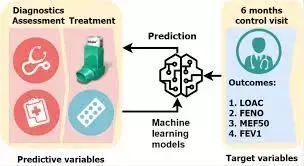- Home
- Medical news & Guidelines
- Anesthesiology
- Cardiology and CTVS
- Critical Care
- Dentistry
- Dermatology
- Diabetes and Endocrinology
- ENT
- Gastroenterology
- Medicine
- Nephrology
- Neurology
- Obstretics-Gynaecology
- Oncology
- Ophthalmology
- Orthopaedics
- Pediatrics-Neonatology
- Psychiatry
- Pulmonology
- Radiology
- Surgery
- Urology
- Laboratory Medicine
- Diet
- Nursing
- Paramedical
- Physiotherapy
- Health news
- Fact Check
- Bone Health Fact Check
- Brain Health Fact Check
- Cancer Related Fact Check
- Child Care Fact Check
- Dental and oral health fact check
- Diabetes and metabolic health fact check
- Diet and Nutrition Fact Check
- Eye and ENT Care Fact Check
- Fitness fact check
- Gut health fact check
- Heart health fact check
- Kidney health fact check
- Medical education fact check
- Men's health fact check
- Respiratory fact check
- Skin and hair care fact check
- Vaccine and Immunization fact check
- Women's health fact check
- AYUSH
- State News
- Andaman and Nicobar Islands
- Andhra Pradesh
- Arunachal Pradesh
- Assam
- Bihar
- Chandigarh
- Chattisgarh
- Dadra and Nagar Haveli
- Daman and Diu
- Delhi
- Goa
- Gujarat
- Haryana
- Himachal Pradesh
- Jammu & Kashmir
- Jharkhand
- Karnataka
- Kerala
- Ladakh
- Lakshadweep
- Madhya Pradesh
- Maharashtra
- Manipur
- Meghalaya
- Mizoram
- Nagaland
- Odisha
- Puducherry
- Punjab
- Rajasthan
- Sikkim
- Tamil Nadu
- Telangana
- Tripura
- Uttar Pradesh
- Uttrakhand
- West Bengal
- Medical Education
- Industry
FENO-guided asthma treatment during pregnancy fails to improve infant developmental outcomes suggests study

FENO-guided asthma treatment during pregnancy fails to improve infant developmental outcomes suggests a study published in the European Journal of Pediatrics.
Asthma during pregnancy is associated with a range of adverse perinatal outcomes. It is also linked to increased rates of neurodevelopmental conditions in the offspring. We aimed to assess whether fractional exhaled nitric oxide (FENO)-based asthma management during pregnancy improves child developmental and behavioural outcomes compared to usual care. The Breathing for Life Trial was a randomised controlled trial that compared FENO-based asthma management during pregnancy to usual care. Participants were invited to the developmental follow-up, the Breathing for Life Trial - Infant Development study, which followed up infants at 6 weeks, 6 months and 12 months. The primary outcomes were measured in infants at 12 months using the Bayley-III: Cognitive, Language and Motor composite scores. Secondary outcomes included Bayley-III social-emotional and adaptive behaviour scores, autism likelihood and sensory and temperament outcomes. The exposure of interest was the randomised intervention group. Two hundred and twenty-two infants and their 217 participating mothers were recruited to the follow-up; 107 mothers were in the intervention group and 113 were in the control group. There was no evidence of an intervention effect for the primary outcomes: Bayley-III cognitive (mean = 108.9 control, 108.5 intervention, p = 0.93), language (mean = 95.9 control, 95.6 intervention, p = 0.87) and motor composite scores (mean = 97.2 control, 97.9 intervention, p = 0.25). Mean scores for secondary outcomes were also similar among infants born to control and FENO group mothers, with few results reaching p < 0.05. In this sample, FENO-guided asthma treatment during pregnancy did not improve infant developmental outcomes in the first year of life.
Reference:
Whalen, Olivia M., et al. "Effect of Fractional Exhaled Nitric Oxide (FENO)-based Asthma Management During Pregnancy Versus Usual Care On Infant Development, Temperament, Sensory Function and Autism Signs." European Journal of Pediatrics, 2024.
Dr. Shravani Dali has completed her BDS from Pravara institute of medical sciences, loni. Following which she extensively worked in the healthcare sector for 2+ years. She has been actively involved in writing blogs in field of health and wellness. Currently she is pursuing her Masters of public health-health administration from Tata institute of social sciences. She can be contacted at editorial@medicaldialogues.in.
Dr Kamal Kant Kohli-MBBS, DTCD- a chest specialist with more than 30 years of practice and a flair for writing clinical articles, Dr Kamal Kant Kohli joined Medical Dialogues as a Chief Editor of Medical News. Besides writing articles, as an editor, he proofreads and verifies all the medical content published on Medical Dialogues including those coming from journals, studies,medical conferences,guidelines etc. Email: drkohli@medicaldialogues.in. Contact no. 011-43720751


